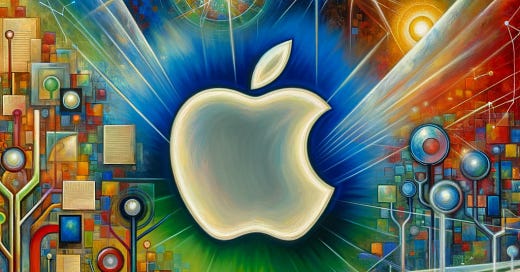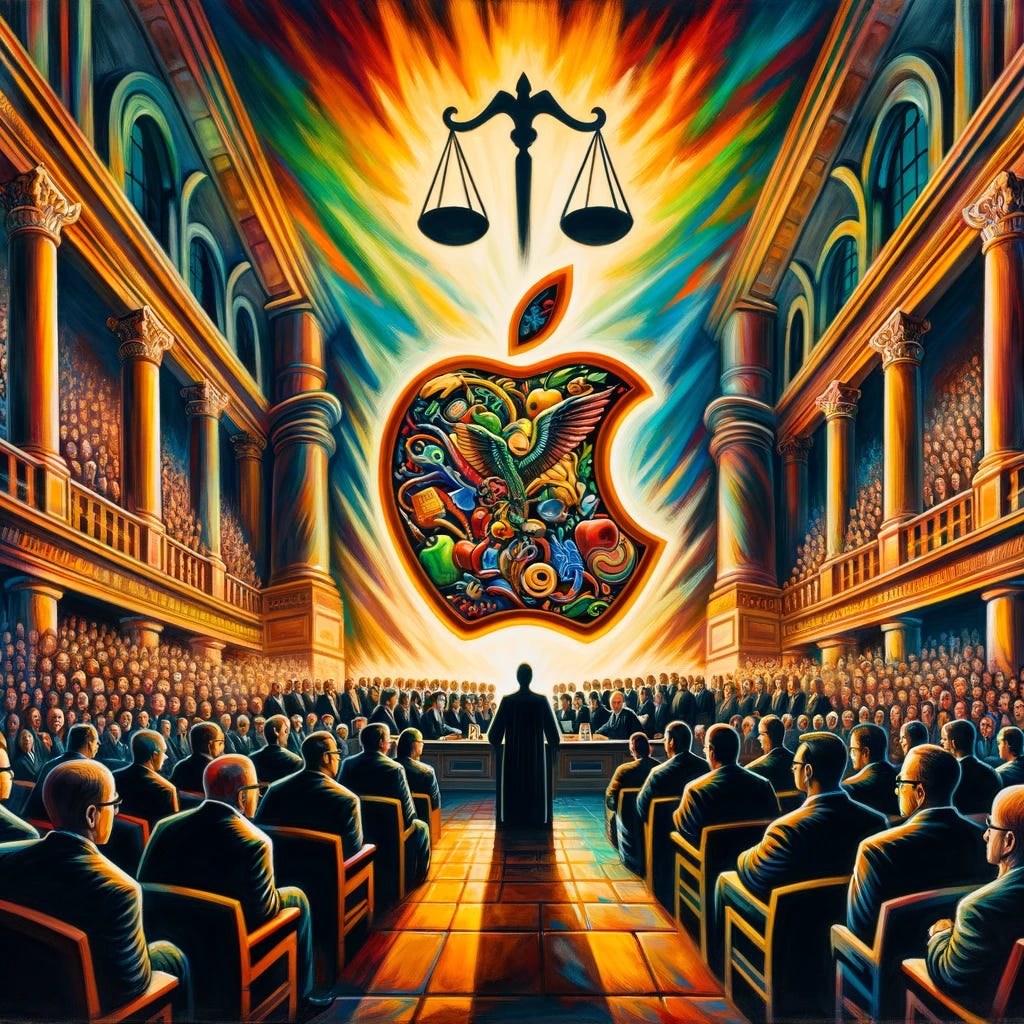Apple Faces New Anti-Trust Lawsuit from Department of Justice.
Targeting Apple Inc.'s alleged monopoly, the DOJ, backed by 15 states and Washington DC, may ultimately benefit small companies and the retail consumer.
Introduction
In an unfolding narrative that may very well redefine the contours of the digital economy, the United States Department of Justice (DOJ), backed by 15 states and Washington, DC, has filed an anti-trust lawsuit against Apple Inc. This action accentuates a broader crusade against monopolistic practices within the tech industry, highlighting concerns over consumer welfare and the competitive landscape that smaller entities navigate.
The Crux of the Matter
Allegations of a Monopolistic Behemoth
Unveiled in today’s DOJ press release (March 22), central to this legal conflict is an 88-page dossier that consolidates various complaints long articulated against Apple by critics from across the spectrum. The accusations span from the alleged suppression of cloud-streaming applications to hindering the development of "super apps" by rivals, all underscored by Apple's controversial 30% fee on App Store sales. According to the DOJ, these practices symbolize Apple's dominant grip on the market, hampering innovation and restricting competitive dynamics.
Ecosystem Exclusivity: A Double-Edged Sword
Further allegations paint a picture of an ecosystem meticulously crafted to lock users within Apple's orbit, making interoperability with products outside this ecosystem frustratingly difficult. This includes the purportedly deliberate barriers to seamless messaging between iPhone and Android users, which not only inconvenience consumers but also serve as a bulwark against platform migration.
Apple Pay: The Only Game in Town?
A specific point of contention is Apple's alleged monopoly over digital wallets on iPhones, effectively sidelining third-party developers. This move, as per DOJ claims, underscores a broader strategy to monopolize services on its devices, reinforcing the company's market dominance at the expense of consumer choice and innovation.
Consumer Welfare at the Crossroads
The implications of these allegations, if proven, extend far beyond the corporate fortunes of Apple. They touch upon the very essence of consumer welfare in the digital age. The lawsuit holds the promise of dismantling barriers to innovation, fostering a more competitive marketplace that can spur the development of novel services and products, thus enriching the consumer experience.
Historical Echoes and Future Prospects
This legal challenge is reminiscent of the landmark case against Microsoft in the '90s, which redefined the competitive dynamics of the PC market. It underscores a pivotal moment where regulatory intervention could catalyze significant shifts within the tech industry, potentially heralding an era of increased interoperability, competitive fairness, and innovation.
Summing Up: A Call for a Balanced Tech Ecosystem
As the legal proceedings against Apple unfold, they underscore a critical juncture in the tech industry's evolution. The outcome of this battle could pave the way for a more equitable digital marketplace, where innovation thrives unencumbered by monopolistic practices. It calls for a balanced approach, where regulatory bodies and tech giants collaborate to foster an ecosystem that champions consumer welfare, nurtures small players, and sustains the dynamism that has long been the hallmark of the digital age.
In essence, this lawsuit is not merely a legal dispute; it is a clarion call for a tech ecosystem that aligns with the broader principles of fairness, innovation, and consumer welfare. As we stand at this crossroads, the direction we choose will indelibly shape the digital landscape of tomorrow.






